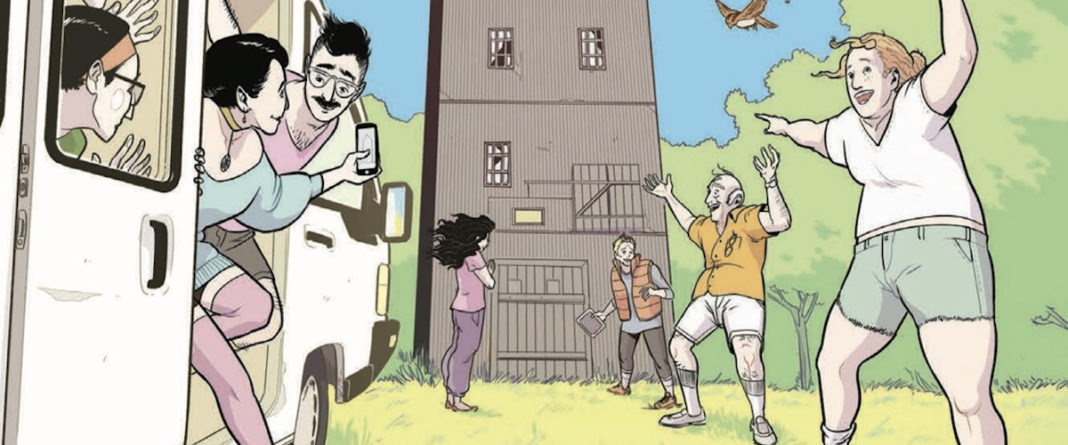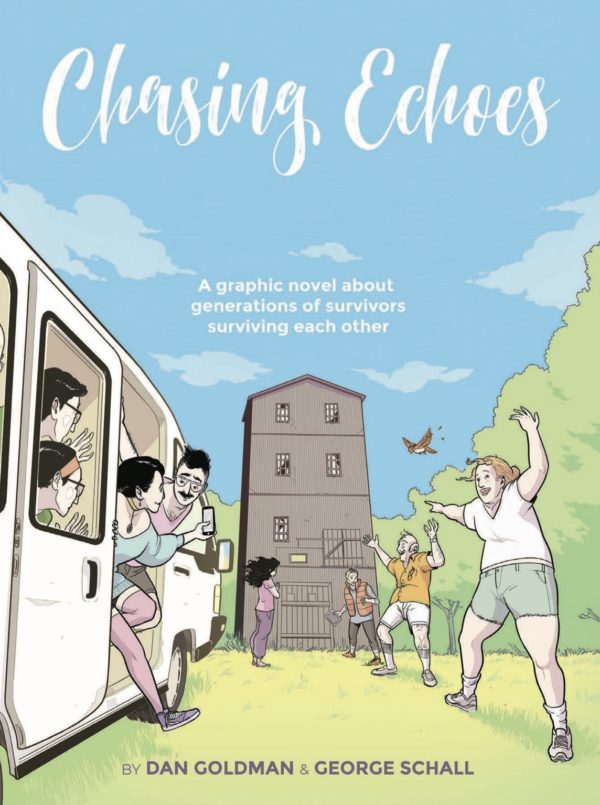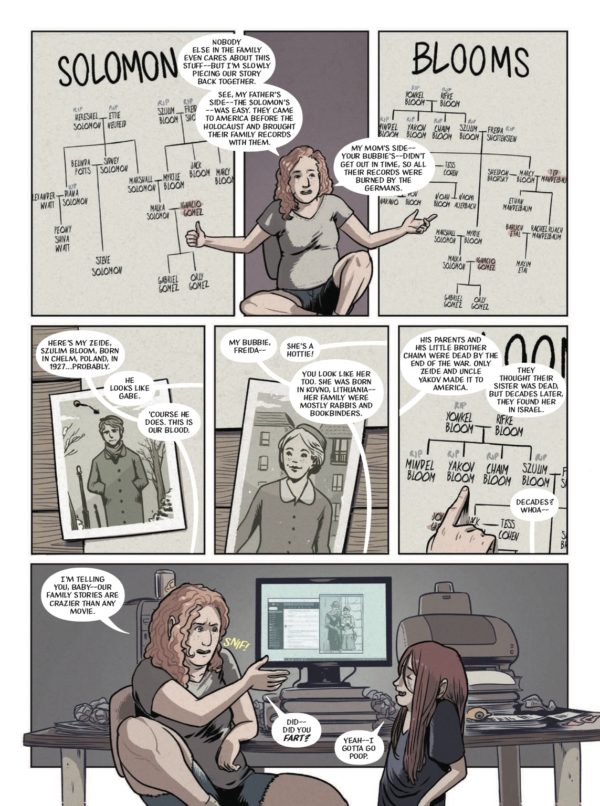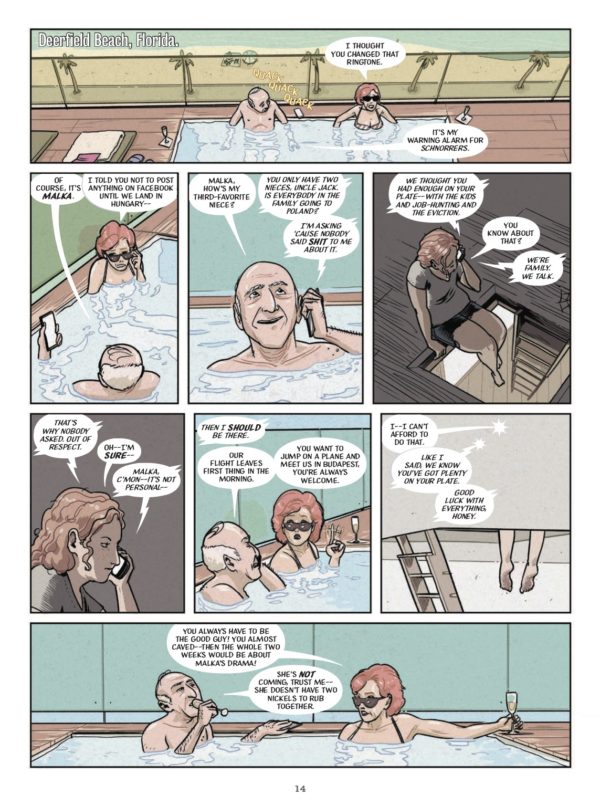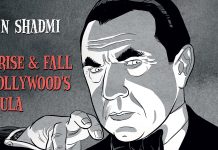Chasing Echoes
Written by Dan Goldman
Illustrated by George Schall
Humanoids Life Drawn
It might be fair to call Malka Solomon a mess, but it’s not nice. That doesn’t stop her extended family from whispering about it behind her back and certainly doesn’t prevent the ruder of the bunch from saying it to her face. But Malka thinks a family should support one another and the reason she’s with her family in order to be mistreated directly should be a resounding siren that bellows into their ears and sets their behavior straight. They’re in Poland trying to find the mill that their grandfather owned before fleeing Nazis, a sort of group effort to face their past together and come to terms with the tumultuous evil that changed the course of their family forever. Shouldn’t that in itself point out to them that it’s always best to treat people well?
As the main conflict in Chasing Echoes, it brings up questions. Typically this subject matter wouldn’t be treated with mean humor and chaos as a recurring tone, but that’s just one aspect in which Dan Goldman’s observations make for a very different kind of story about the generational effects of the Holocaust.
Malka is a single mother who’s struggling to survive, and in that way, her family just can’t see her. Her marriage is over, she’s without a job, she’s had some sanitary issues in her home — which she’s about to lose anyhow — and her son has no hesitation to go live with his father instead once he gets the chance. Malka’s one pride is as the family historian, but when she finds out that her extended family is going to take the trip to Poland without her, she’s gutted. And when circumstances allow her to join them at the last minute, she’s put in a position where her value as a family member is undercut by her reputation and their snippy judgment.
Chasing Echoes does some time jumping to provide full context of the situation. The trip to Poland is the focus, but there are also flashbacks to the grandfather talking about his past in Poland, and further looks into the actual events that he faced. It’s a wise move to include these flashbacks, to remind the reader why these people are on this trip, especially important given the amount of snippiness and complaining that goes on between them and sometimes becomes directed at the world they are passing through.
It’s the behavior of the family that commandeers the more expected themes of a book dealing with the subject matter of the Holocaust and a family seeking to experience their stolen roots into something more complicated. Trauma has become the center of their story about themselves, a dark and powerful blot in their history that scattered and destroyed their family and challenged their identity. It’s a trauma that melds into the same that other families faced, and a moment in time where their personal lives became wrapped up in the huge strokes of history.
But despite that center, the family doesn’t behave as if pain is at the core of who they are. In fact, there’s a level of entitlement and judgment, especially exhibited in their treatment of Malka and their inability to give her an inch to prove herself unworthy of that treatment. In some ways, it’s as if their historical misfortune has not transformed their views and affected their treatment of others, but instead solidified their anger and allowed them to cling to the harsh attitudes required for survival, unleashing them in inappropriate situations toward people who don’t deserve.
Chasing Echoes is not afraid to shy away from reverence. Goldman seems too invested in actually examining his subject matter rather than just creating something heartwarming, and he allows his characters to be people, warts and all, rather than rely on the audience owing them sympathy because of the situation they are in. Like anyone else, the Solomons need to earn their sympathy, with Malka functioning as the object through which they can prove who they actually are as people.
At the same time Chasing Echoes is optimistic. Despite its side-eyed stare at the dynamics at play and the historical baggage and institutions that engulf them, Goldman certainly suggests that there’s hope for the Solomon family after all. But lessons are hard things and require humility to absorb. What Chasing Echoes suggests is that sometimes first-hand experience and realizations made in-the-moment might hold more power in helping lessons to be learned than passing down tragedy or making museums of it. Learning a lesson is something that is done by the living, it is an action. The dead can only provide inspiration for that action.


